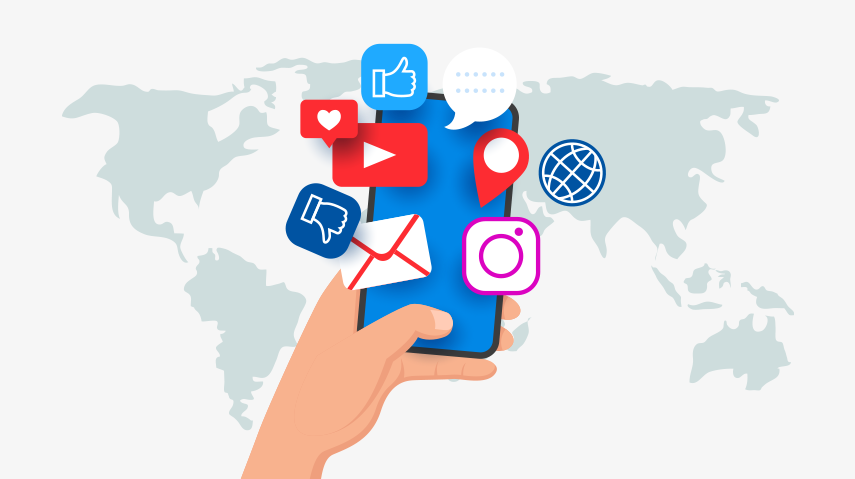In the early days of marketing, businesses placed ads in magazines or on billboards, hoping the right person would stumble upon them. Fast forward to today, and most marketing is now digital. It makes sense, given how much time people spend online.
That means businesses have nearly endless opportunities to reach consumers through digital marketing. But because the internet is so vast, and because it’s used for so many different purposes, several different digital marketing channels have emerged over time. And so digital marketers have to figure out which digital marketing channels will reach their target customers.
So how do digital marketers know which channels to use? It’s not easy, but in this article, we’ll help you understand the unique benefits and applications of seven major digital marketing channels.
What Is Digital Marketing?
Let’s begin with the basics: Digital marketing is the use of any internet-based technology to help sell a product or service. Digital marketers use various digital methods to reach people through digital channels, including search engine optimization (SEO), pay-per-click (PPC) advertising, targeted advertising, affiliate marketing, and more.
Related Read: Why Is Digital Marketing Important?
What Is a Digital Marketing Channel?
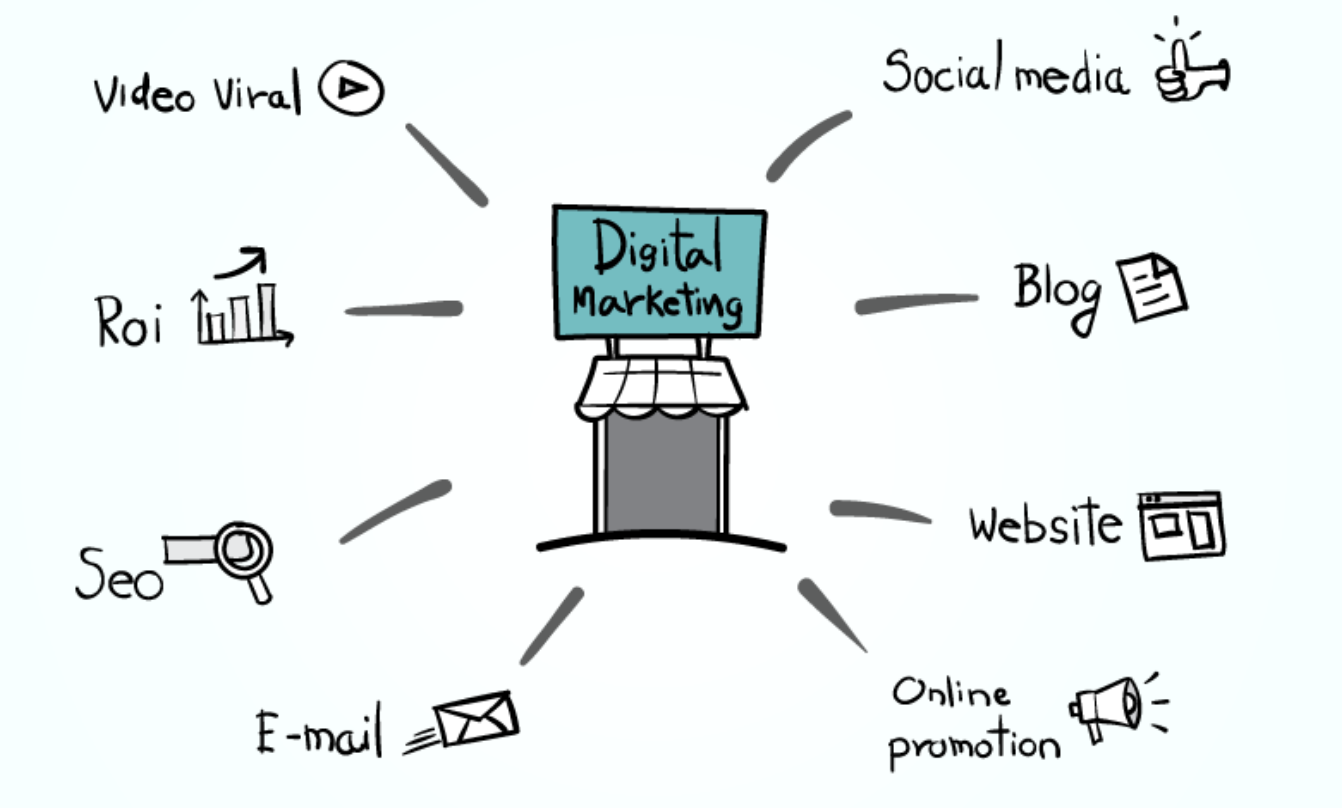
Digital marketing channels are methods of delivery of digital marketing assets. If you need to get the word out about a new product, you might choose one or several channels to deliver the message. Some common digital marketing channels include social media, video marketing, and influencer marketing.
What Is the Importance of Digital Marketing Channels?
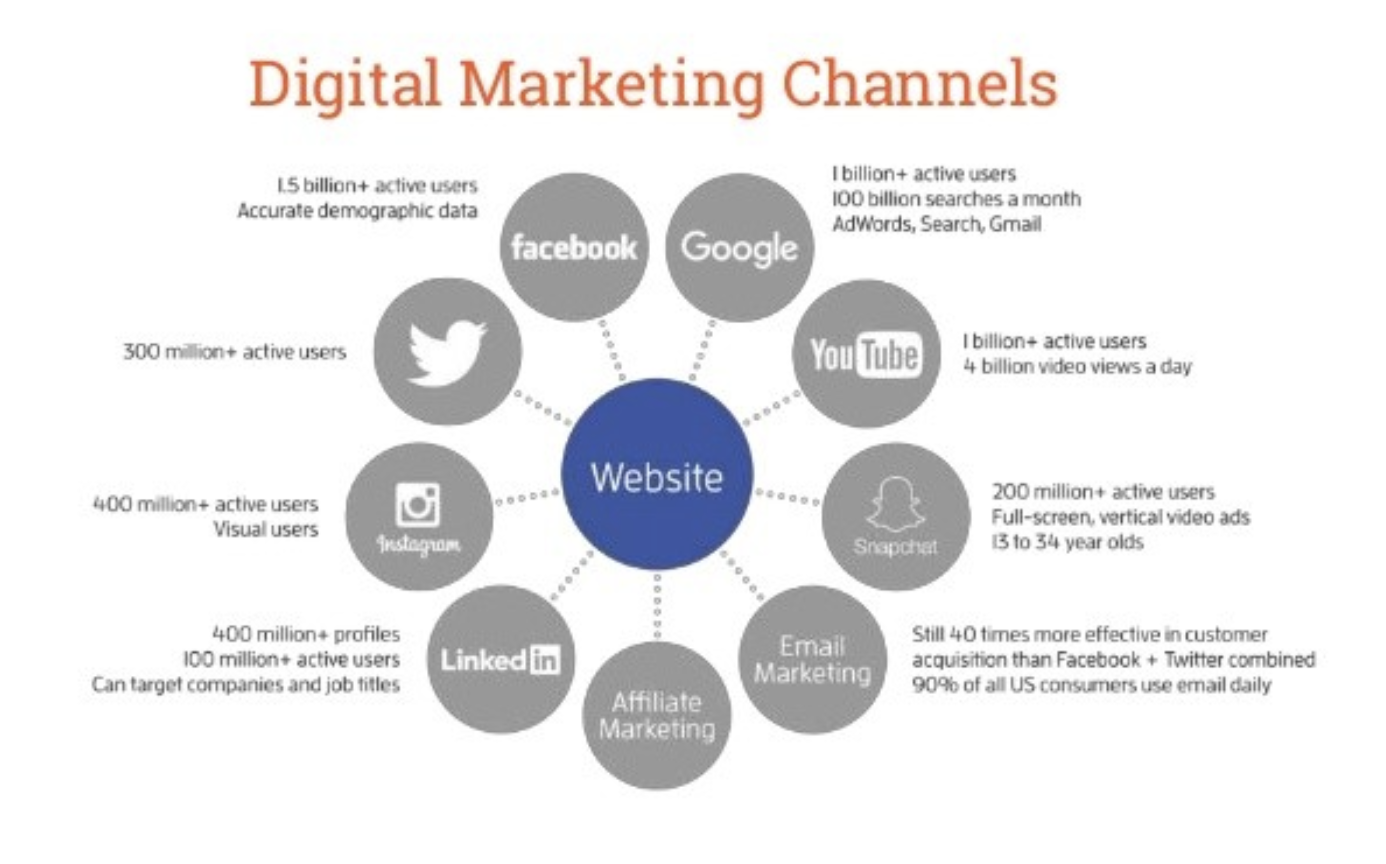
Digital marketing channels are the conduits for a digital marketing strategy. The primary purpose of digital marketing is to leverage the power of the internet and other digital technologies to increase brand awareness, sales, or other critical metrics. Here are some of the other reasons why digital marketing channels are critically important to businesses today:
Find Different User Groups.
Each digital marketing channel reaches a unique audience.
Promote Different Types of Content.
SEO is a great channel for delivering blog posts, but social media can be more effective for delivering videos. Each channel has different strengths.
Nurture Leads More Effectively.
Some people respond better to one channel than another. So if you’re investing in the right channels, you can nurture more leads.
Increase Brand Awareness.
The more exposure your brand gets via a variety of digital marketing channels, the more awareness you will generate for your brand.
7 Popular and Effective Digital Marketing Channels
Here are some of the most effective marketing channels for businesses:
1. Social Media Marketing
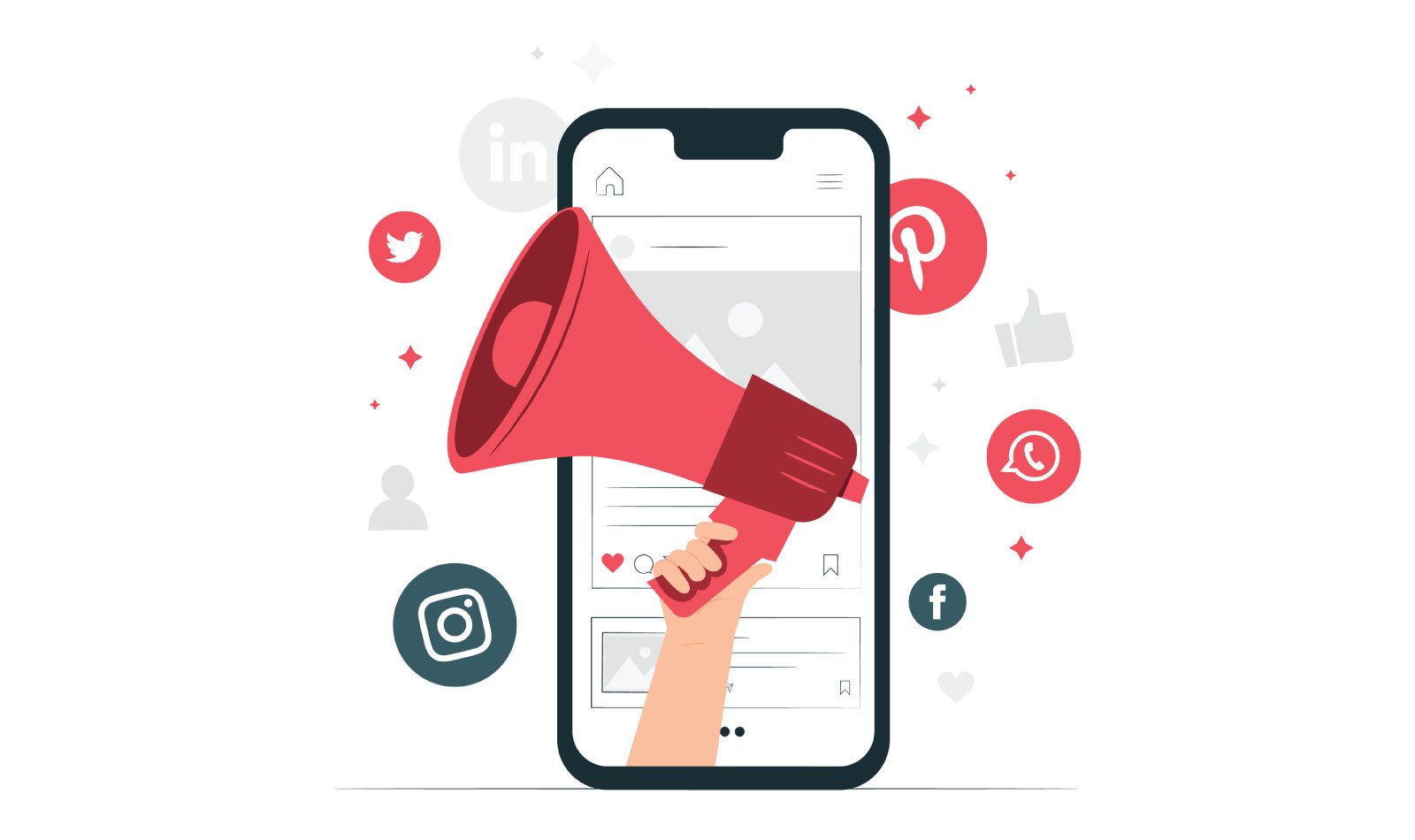
According to Pew Research Center data from last year, 72% of all adults in the United States use at least one social media channel. Whether it’s Facebook, Twitter, Instagram, TikTok, or LinkedIn, you can reach much of the world on social media platforms. This makes social media one of the most important online marketing channels to leverage.
Benefits of Social Media as a Marketing Channel:
- Make your brand more relatable
- Robust, built-in analytics so you can track and meet your social media KPIs
- Free to use in almost all cases
This Channel Is For:
Ecommerce brands, retailers, creative agencies, freelancers, and many other businesses that deal with the public see enormous benefits from an investment in social media.
How To Get Started With Social Media Marketing
To start, create profiles for your business on all relevant social media channels. All you have to do is make posts on those digital platforms and grow your online presence. What you post is up to you, but most social media marketers post a mix of the following:
- Links to blog posts published on your business website
- Links to other articles relevant to your ideal audience
- Short videos showcasing your products or services
- Customer or client testimonials
- Photos that demonstrate your offerings or other concepts relevant to your audience
Tips for Success
- Create a simple social media calendar that details when and what you will post. This provides accountability to keep you consistent and allows you to plan ahead.
- Be interactive. Social media is all about dialogue, so tag people and businesses in your posts, and respond to comments on your profiles.
2. SEO

If you’re not actively investing in SEO, you are likely missing a key part of your potential audience. That’s because 68% of experiences that occur online begin with a search engine, and SEO is all about getting your website to come up often and in top positions in search engines.
And don’t make the mistake of thinking that you’re done with SEO because you can find your website in Google results. You need to rank well for keywords relevant to your business. Keep in mind that less than 1% of Google users will click on websites on the second page of search engine results.
Benefits of SEO as a Marketing Channel:
- Helps users find your business organically, increasing trust
- Provides compounding returns over time as you gain more rankings
- Allows you to target every stage of the sales funnel with different keywords
- Building a social media persona helps customers connect with your brand
This Channel Is For:
Any business with a website can benefit from SEO because ranking well in search engines exposes your business to potentially hundreds of thousands or even millions of people who use search engines every day. However, you may have to do it DIY if you don’t have a budget to invest in an SEO provider.
How To Get Started With SEO
Getting started with SEO is relatively easy. You need to do a few basic things:
- Identify the keywords you would like your website to rank for.
- Publish content on your website that includes those keywords.
- Monitor your website’s performance for your chosen keywords using Google Search Console or a third-party SEO tool.
Tips for Success
- Start early. SEO is a long-term investment—it can take six months or more before your new keyword-optimized content ranks well in search engine results. So start sooner rather than later so you get the results when you need them.
- Choose reasonable keywords. You may want to rank first for a keyword like “used cars,” but you may not have the time or resources to rank quickly for such a broad and competitive keyword. Instead, modify your keyword to make it more specific and attainable by adding a location or other modifier. “Chicago used cars” is a lot easier to rank for than “used cars” in general.
3. Email Marketing

For every dollar invested into email marketing, the average ROI is $36. The returns are great, and the methods are surprisingly simple. Email marketing is simply the act of acquiring the email addresses of potential customers and emailing them. What you send them can vary widely, from direct sales pitches to useful information to coupons.
Benefits of Email Marketing:
- Provides a direct way to reach someone — all you need is an email address to reach the top of their inbox
- Can yield fast results (More than half of recipients who opened marketing emails opened them within six hours of receiving them)
- Can be automated with low-cost or even free software
This Channel Is For:
If you publish content on your website’s blog, offer periodic sales or giveaways, or want to promote a new product offering, then email marketing may be an effective online marketing channel for you.
How To Get Started With Email Marketing
The first step of email marketing is to build an email list. To gather emails in an ethical way, consider the following strategies:
- Add an email signup form in a prominent place on your website
- If you offer online purchases, ask users to enter their email to get product or service updates via email
- Publish high-value and gated content on your website and require readers to submit their email in order to view it
Once you have some email addresses, send regular emails to nurture them. You might choose to send an email newsletter or simply send out emails each time you are running a sale or when you publish a new blog post.
Tips for Success
- Consider your subject lines, as subject lines make or break the success of any email marketing campaign. Make sure they grab attention and encourage the reader to open the email. And don’t rely on clickbait because this will always disappoint the reader. Here’s a good example and bad example of an email subject line:
- Good example: 21 Ways to Grow Your Business in 2022. While this subject line doesn’t give away every detail of the email, it makes a promise that your email can actually deliver.
- Bad example: You’ll Never Believe How These Businesses Grew Their Sales Last Year. The reader very likely will believe how they grew their sales, so the subject line is already making false promises to the reader.
- Provide a clear and simple way for recipients to unsubscribe from your emails to avoid being labeled as spam.
4. Video Marketing
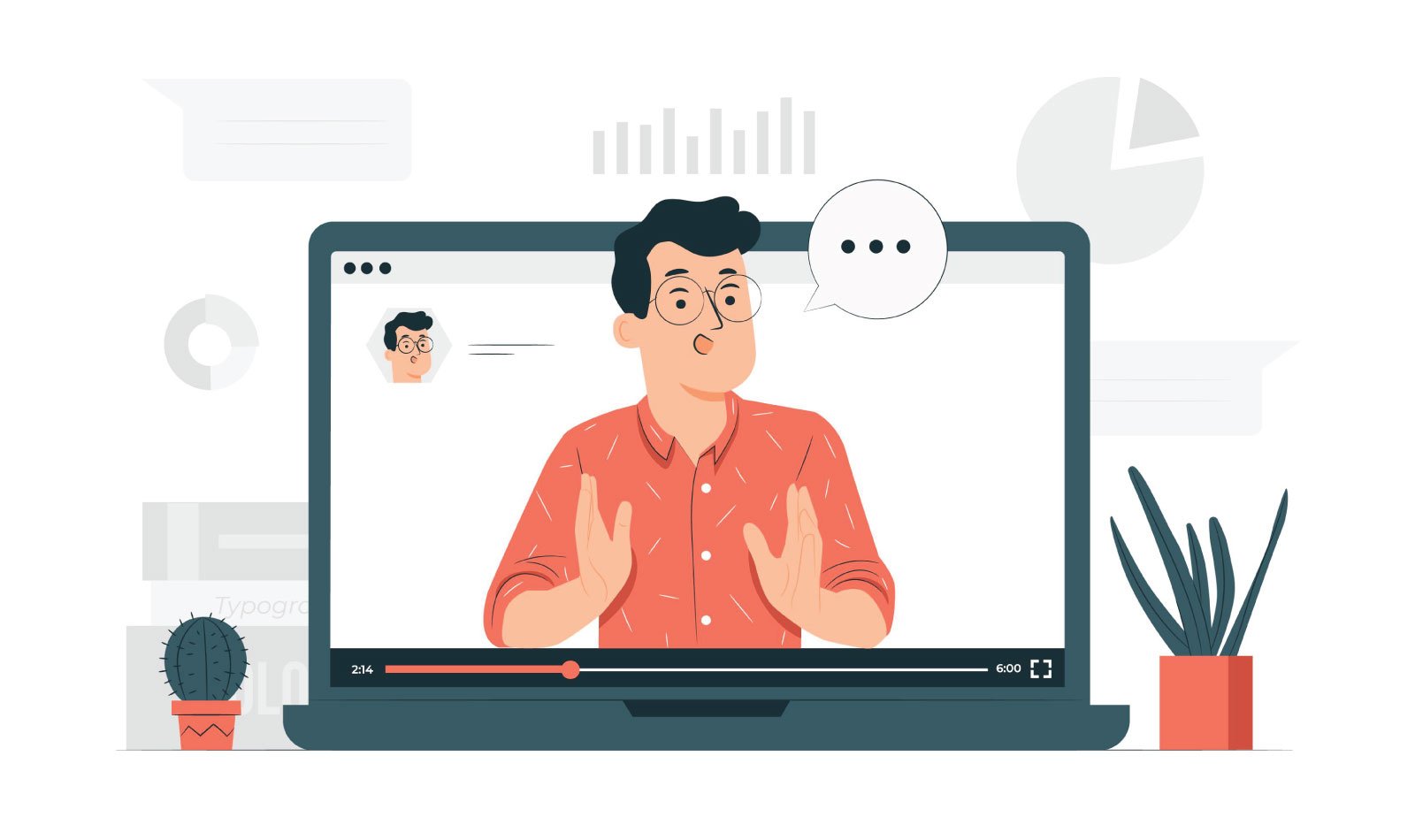
The average internet user spends 16 hours per week watching online videos. This means you have a ton of chances to reach those people if you engage in video marketing.
Benefits of Video Marketing:
- More leads (Around 86% of people who do video marketing say this channel is effective at generating leads for their business)
- Can be an engaging medium for many users
- Much more likely than many other types of content to result in purchases on social media
This Channel Is For:
Anyone who has a smartphone can record a shareable video to market products or services. However, to create branded videos that represent the image you want to project, you may need a small video marketing budget to invest in video editing software or a video production service.
How To Get Started With Video Marketing
You can easily dip your toes into video marketing without putting together a full video strategy. Record short and simple videos to use in and alongside your existing digital marketing channels. After you have posted the videos on your website, on social media, and in emails, track their performance.
Tips for Success
- Don’t just repackage your blog posts or written content as videos. Instead, create short videos that demonstrate visual concepts related to your brand, such as how-to content or product demonstrations.
- Make the first few seconds of your video as engaging as possible. Many platforms insert an ad after the first few seconds, and this is a critical point at which a user may choose to close your video. Give them reasons to keep watching.
5. PPC

Among nearly 1,000 surveyed businesses, 74% said that PPC was a major driver of business for them. There’s a good reason for that: PPC is designed to be fast and effective.
Here’s how it works: You bid on keywords for which you would like your ads to appear, and when a search engine user enters those keywords, your ad shows up. You only pay, however, when a user clicks on your ads on search engines.
Benefits of PPC Advertising:
- Can provide nearly immediate sales
- Doesn’t require you to fight to rank for competitive keywords
- Only pay for the clicks your ads get
This Channel Is For:
PPC isn’t for everyone. But for those who have a fairly sizable marketing budget, it can be an ideal way to generate quick leads, which hopefully lead to conversions.
How To Get Started With PPC
Simply go to Google Ads or the equivalent for another search engine and follow the prompts to set up your campaign. If you have questions, most search engines have representatives standing by to take your call.
Tips for Success
- Create and update your negative keyword list. Inevitably, you will get some clicks for keywords that aren’t really relevant to your business. Add these to your negative keyword list to avoid spending money on those clicks in the future.
- Create PPC-specific landing pages for your PPC ads to link to. This helps you sell more directly to the type of user who might click on a PPC ad.
6. Affiliate Marketing
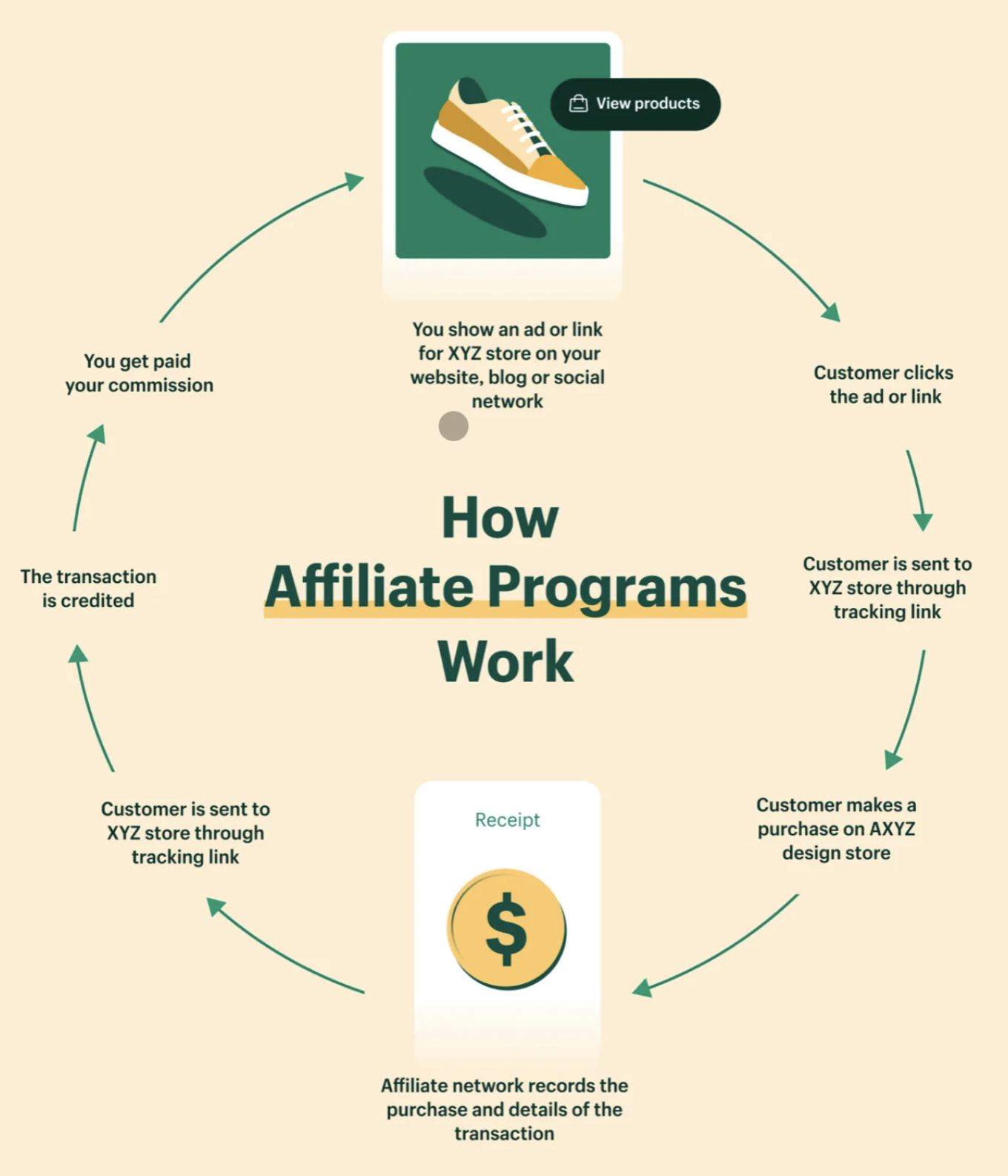
Affiliate marketing is a commission-based sales scheme that rewards web publishers when they sell one of your business’ products through their website, social media profile, or another digital platform.
You provide unique affiliate links that affiliate marketers can use to link to your products, and when one of those links results in a sale, it’s a win-win: You get the sale, and the affiliate marketer takes a cut. This win-win situation has led to the widespread adoption of affiliate marketing programs, which now account for more than 16% of U.S. eCommerce sales.
Benefits of Affiliate Marketing:
- Only pay when your affiliate marketing efforts result in a sale
- Can increase brand awareness for your business.
- Builds a degree of trust that is hard to recreate through cold sales and marketing
This Channel Is For:
Affiliate marketing is ideal for eCommerce businesses selling physical products, but it can also work well for digital products like courses and downloadable content.
How To Get Started With Affiliate Marketing
The alternative to designing your own affiliate marketing program is an established affiliate marketing network, which will grant you immediate access to a network of affiliate marketers and established payment structures and affiliate link generators.
Tips for Success
- Implement retargeting ads on your website. These ads “follow” internet users around the web to display your brand’s ads. That way, you can catch sales from people who clicked affiliate links but didn’t make an immediate purchase.
- If you see success from affiliate marketing networks, consider building your own affiliate program and vetting individual marketers for it to get even more ROI.
7. Influencer Marketing
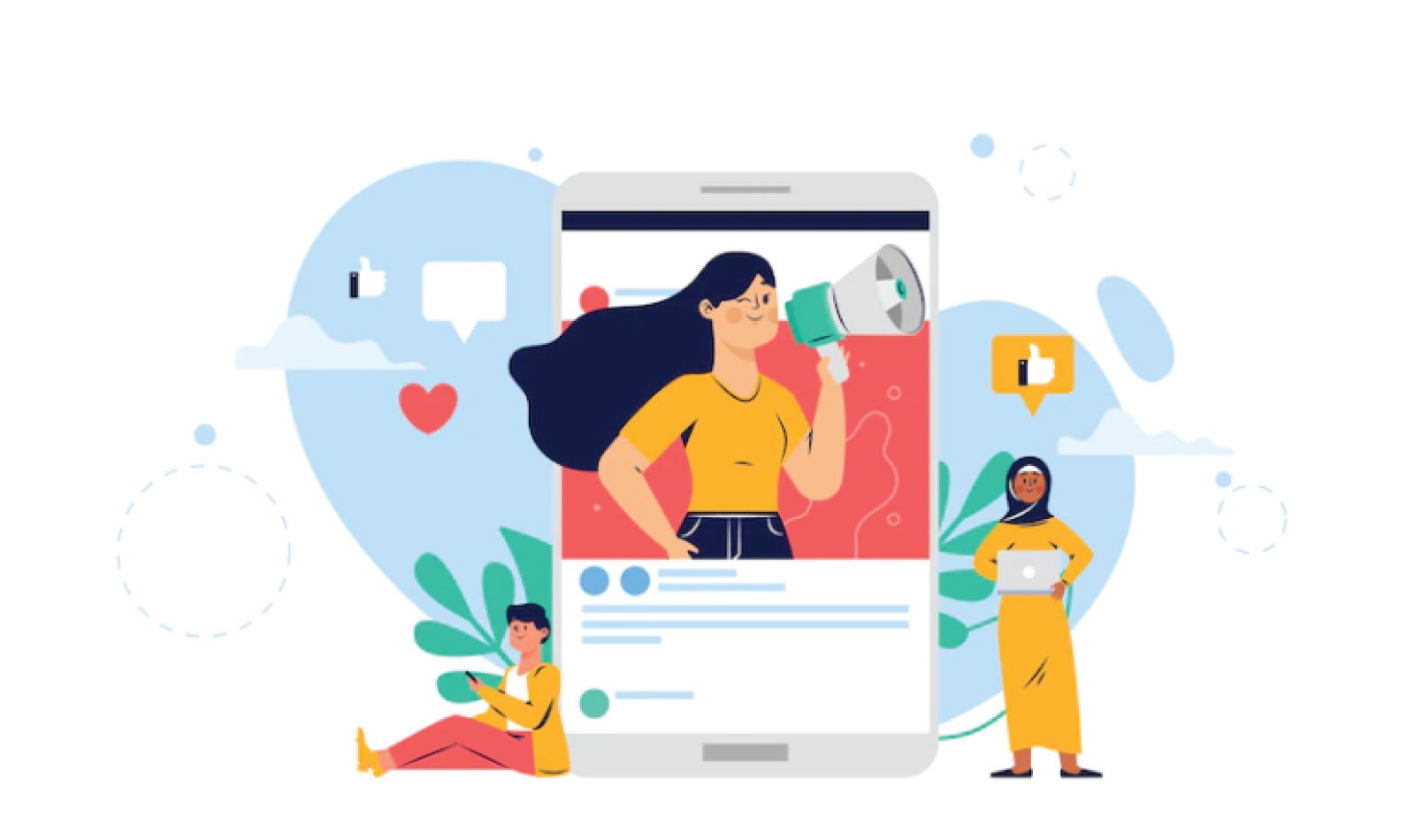
When someone has amassed a large following on a social media platform, they can use their following to advertise certain products, services, or brands for a fee. This is the central concept behind influencer marketing, a digital marketing channel expected to grow into a $16.4 billion industry this year.
Benefits of Influencer Marketing:
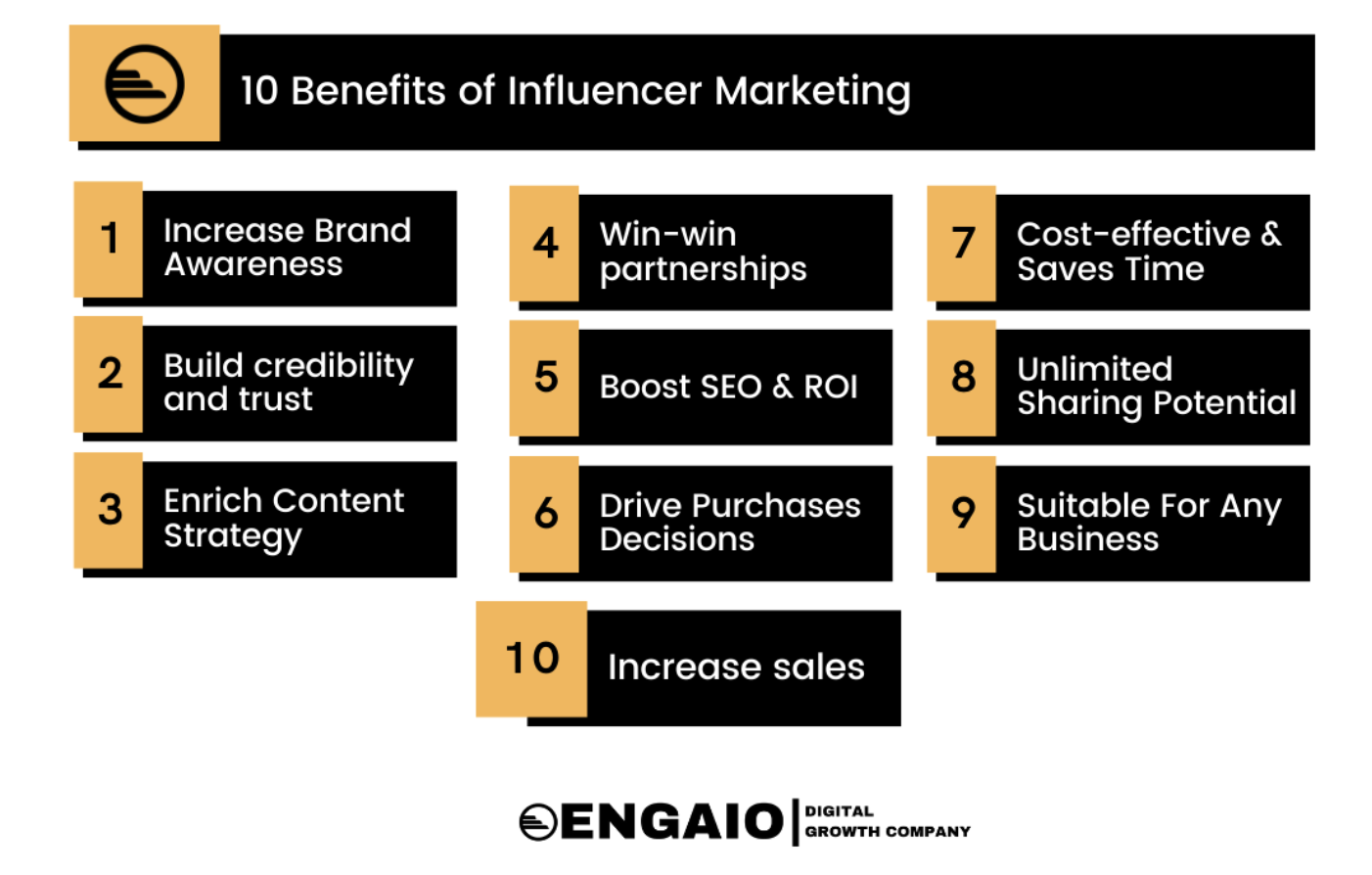
- Creates trust in your brand in unique audiences
- Allows granular audience targeting
- Can lead to long-term partnerships with influencers
This Channel Is For:
Influencer marketing is most effective when you have identified the audiences you would most like to reach online. Otherwise, you may end up with a scattershot approach that doesn’t reach your target customer.
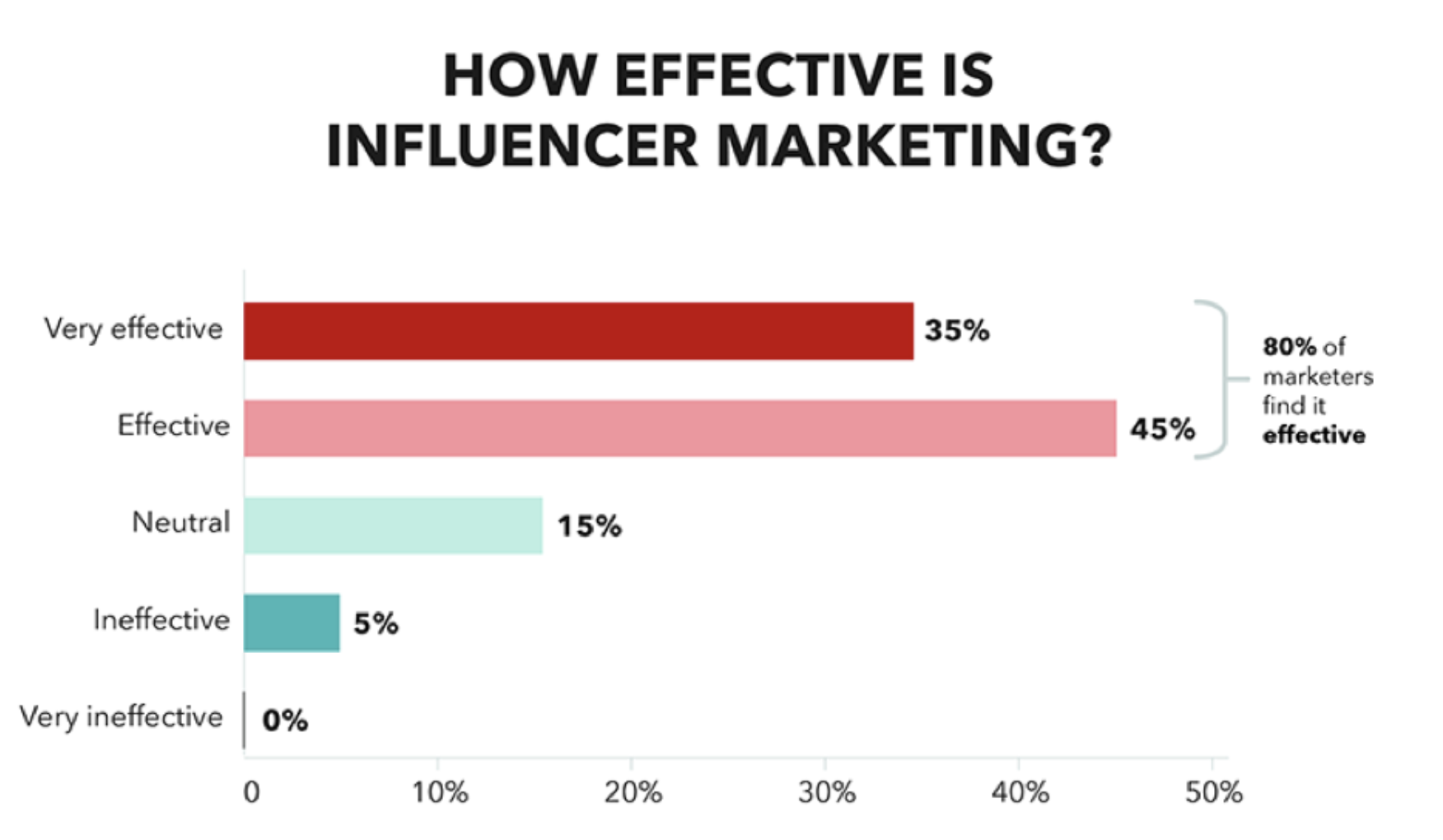
How To Get Started With Influencer Marketing
There are two basic approaches to influencer marketing: working with an influencer marketing agency or forming direct partnerships with influencers. The agency route can be more expensive, but you may get quicker access to a wider pool of influencers. The DIY route may take more time and present some challenges when it comes to pricing, but it can lead to longer-term partnerships.
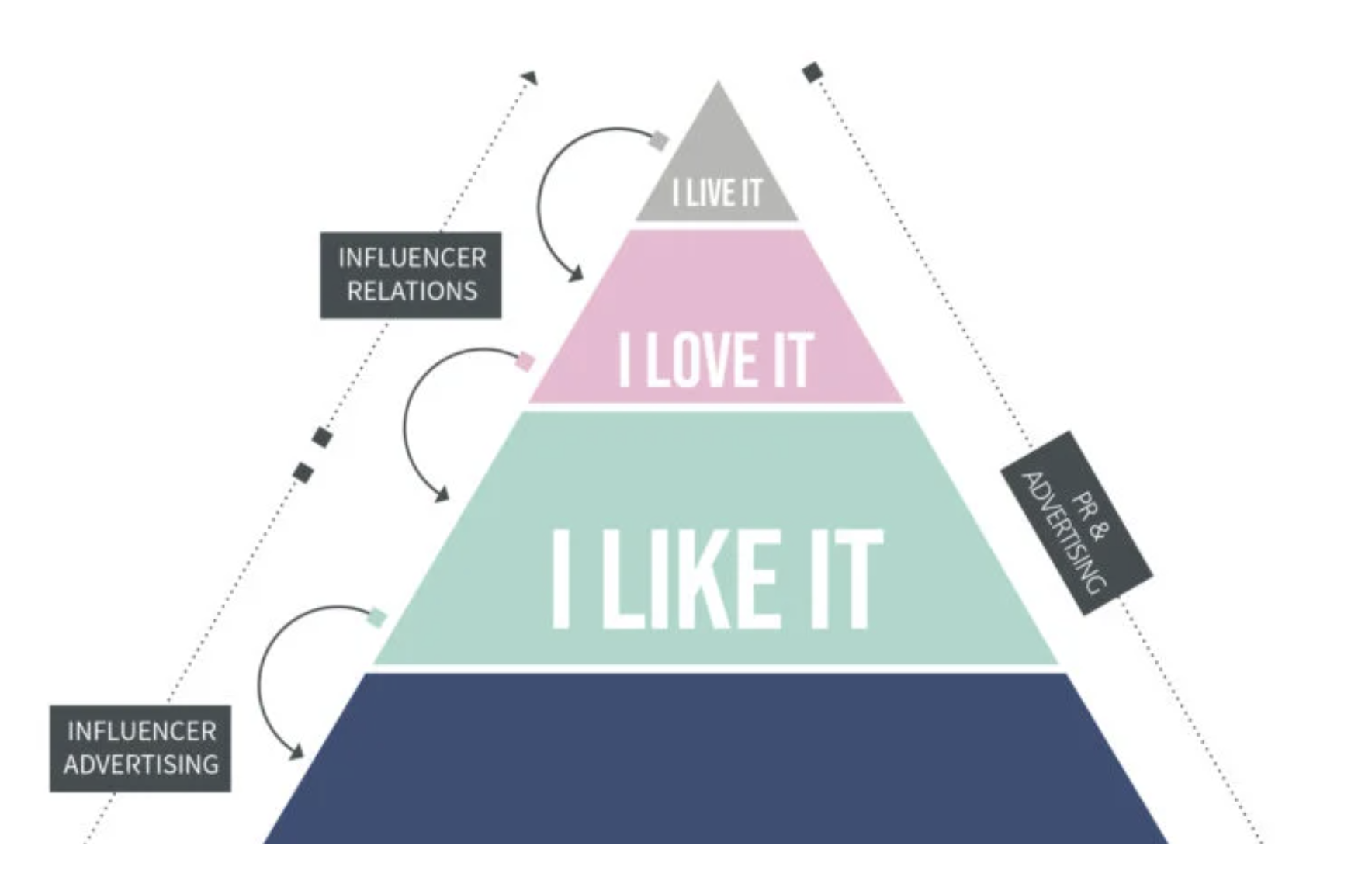
Tips for Success
- Accept that you will not be able to control all aspects of an influencer’s messaging. Trust them to speak to their audiences in the way they know best, and evaluate their performance by looking at the results.
- Ask for proof. Influencers can have high follower counts with low engagement, so ask to see post engagement metrics and any other data they can share.
How To Choose the Right Digital Marketing Channel for Your Needs
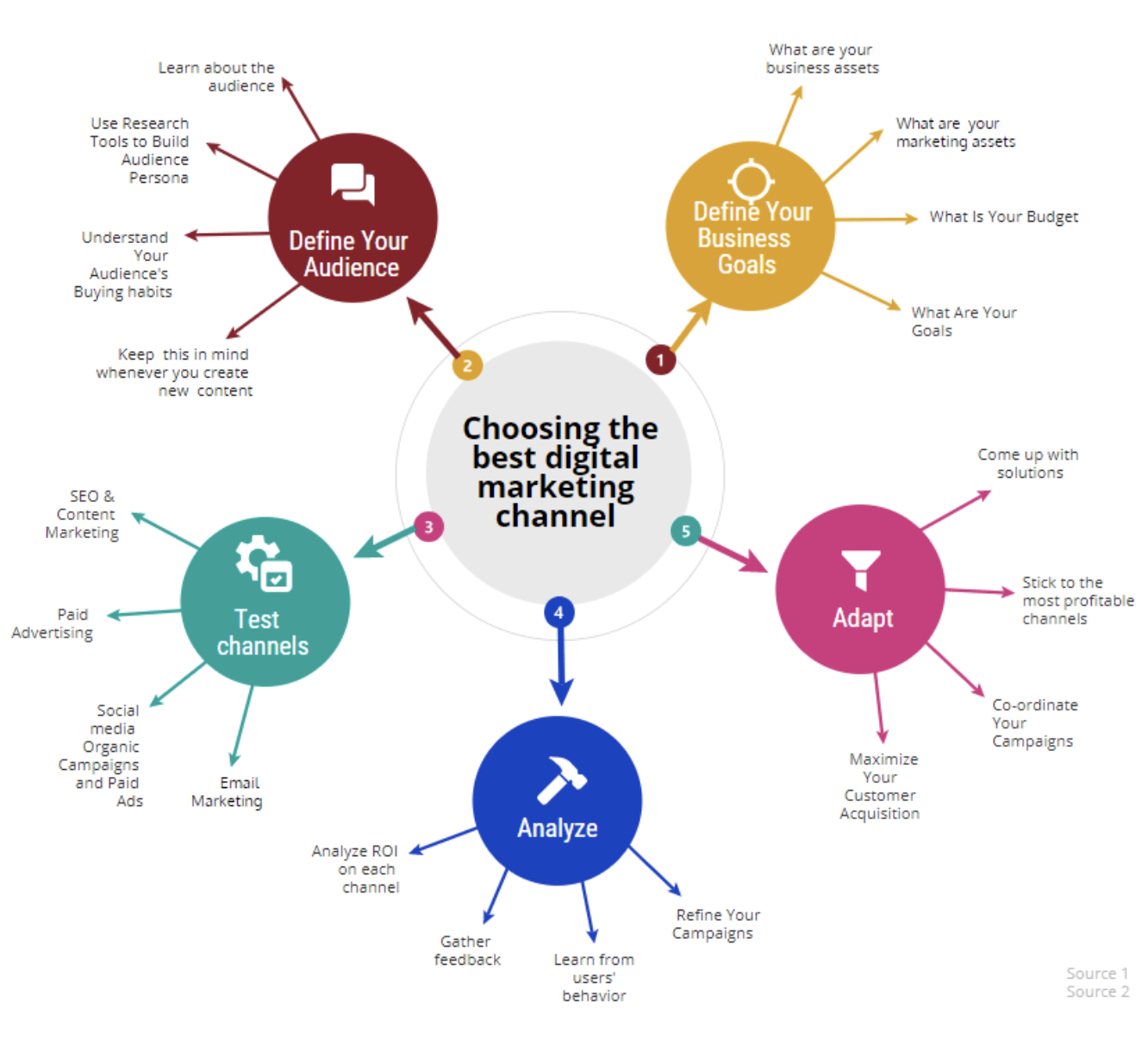
Unless you’re running an enormous company with an even bigger marketing budget, you probably can’t afford to invest in all of the available digital marketing channels at once. So, how do you choose?
Consider the following strategies to help you make your decision:
- Review your analytics data to identify your core existing audience. Then, research the best channels to reach your unique audience members. Are they on social media, or is email the best way to reach them?
- Find out the online marketing channels your competitors use. If you notice a trend among your competitors, there is probably a good reason for that, so use them yourself.
- Devote a small but significant portion of your marketing budget to a single channel and see which ones perform best.
Digital Marketing Channel FAQs
When you’re getting started with any new digital marketing channel, it’s normal to have questions. Luckily, we’ve got answers:
How Do You Measure the Success of a Digital Marketing Channel?
Quantifying the success of a particular channel will depend on both the channel itself and the nature of your business. For SEO, you may choose to measure organic traffic. For social media marketing, you may measure success by how much reach your posts get each week. Ultimately, you can measure the long-term success of any marketing channel by the number of sales it brings to your business.
How Do You Know a Channel Is Giving You Optimal Results?
For many marketing channels, the potential for results is unlimited, so “optimal” results will depend on how much money and time you are investing. If you are seeing a profitable return on your investment in a digital marketing channel, it is likely worthwhile. But remember—your results can almost always be better, which is why you should never stop optimizing your marketing efforts.
Are Digital Marketing Channels Tricky To Work With?
This depends on your level of expertise. For instance, if you are a great writer who already understands the basics of web publishing, you may have an easy time with on-page SEO. If technology makes you nervous and you’re trying to build an affiliate marketing program from the ground up, you may have a lot of trouble. The good news, however, is that most digital marketing channels are approachable if you start small and scale up as your business grows. And if you’re looking to further demystify the digital marketing process, consider a digital marketing professional certificate.
Since you’re here…
Ready for a career in digital marketing? Test our curriculum with this free digital marketing learning path, and check out our salary guide to see what you could be making.
